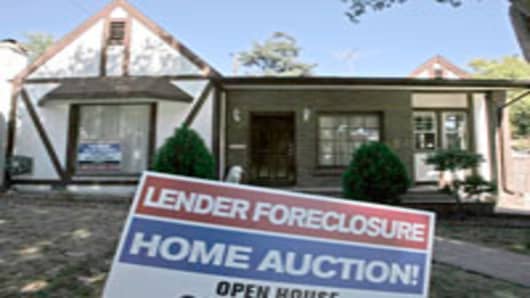Homeowners are likely to wait until the value of their property drops well below what they owe on their homes before walking away from their debts, researchers at the San Francisco Fed said on Monday.
While it might seem reasonable to expect mortgage defaults the moment property values dip below borrowings, homeowners typically stay in their homes until long after that point, the researchers said in the latest issue of the bank's Economic Letter.
"House price changes alone are not the sole predictor of default," wrote John Krainer, a senior economist at the San Francisco Fed, and Stephen LeRoy, a professor emeritus at the University of California, Santa Barbara, and a visiting scholar at the San Francisco Fed.
"The rational default point is below the 'underwater' point where house price equals the remaining loan balance, and depends on prospects for future house price appreciation and borrower default costs."
If homeowners believe their houses will regain lost value, or if they perceive big disadvantages from defaulting like the expense of moving or a lower credit rating, they will try to hold on to their homes, the researchers said.
"The finding comes at a tumultuous time in U.S. housing policy, as attorneys general in all 50 U.S. states look at allegations that banks for years failed to review foreclosure documents properly or submitted false statements in support of foreclosure applications."
The finding comes at a tumultuous time in U.S. housing policy, as attorneys general in all 50 U.S. states look at allegations that banks for years failed to review foreclosure documents properly or submitted false statements in support of foreclosure applications.
Housing values have dropped 30 percent since their peak in 2006, and defaults and foreclosures are at levels not seen since World War II.
In California, Florida and Nevada, more than 20 percent of mortgages exceed home values, and nearly one-third of homes sold in September were in the foreclosure process.
Not every homeowner will behave rationally, the San Francisco Fed researchers said.
"Many borrowers default when they seemingly have no rational incentive to do so, while other borrowers stay current on loans that appear to be irretrievably underwater," the researchers said, calling for more study on the issue.


